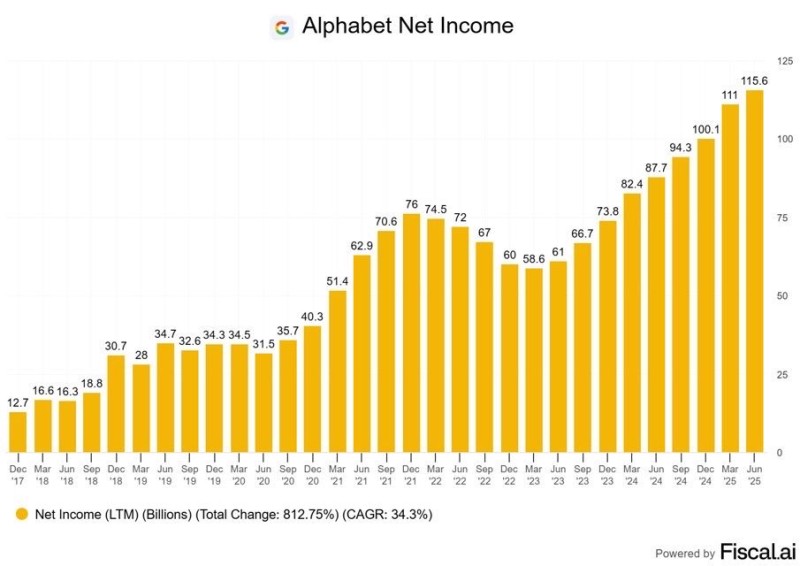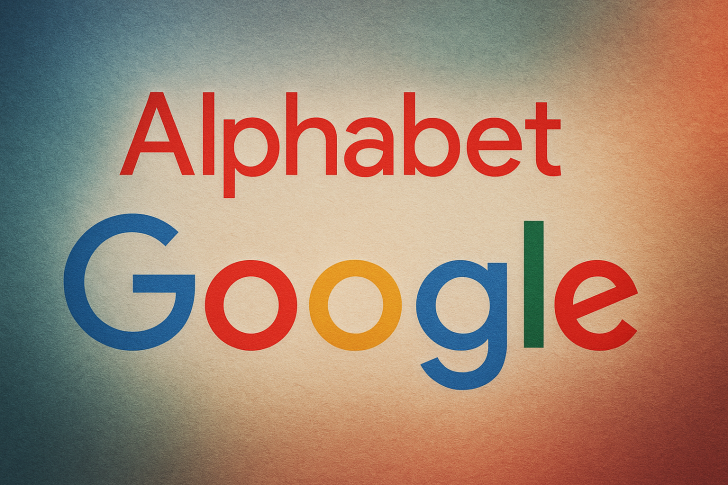Alphabet's financial performance continues to set new benchmarks. The company has reached $116 billion in net income, making it the most profitable corporation globally. While competitors struggle to balance AI spending with profitability, Google's parent company is channeling these record earnings into building the world's largest TPU network, positioning itself as the undisputed leader in AI infrastructure and cloud computing.
From $12B to $116B: Alphabet's Profit Surge
Trader Shay Boloor recently highlighted on social media that Alphabet has become "the most profitable company on the planet," with net income growing from $12.7 billion in 2017 to $115.6 billion by mid-2025.

That's an 812% total increase and a 34.3% compound annual growth rate. This explosive growth stems from the company's expanding digital advertising empire, the rapid rise of Google Cloud, and increasingly profitable AI-driven services. After hitting a brief plateau in 2022-2023, Alphabet bounced back stronger than ever, crossing the $100 billion threshold and leaving most tech giants in the dust.
Self-Funding the AI Revolution
Here's where Alphabet's strategy gets interesting. Instead of burning through cash like many AI startups and even established competitors, Google is funding its AI ambitions entirely from its own profits. The company is pouring billions into TPUs—custom-designed chips built specifically for training and running massive AI models like Gemini. This isn't just about having deep pockets. It's about control and integration. While others depend heavily on NVIDIA GPUs and third-party infrastructure, Alphabet designs its own hardware and weaves it seamlessly into its software ecosystem. This gives them a flexibility and efficiency advantage that's hard to replicate.
How Alphabet Stands Apart
Let's put this in context. Microsoft is investing heavily alongside OpenAI, and Amazon is spending billions to enhance AWS's AI capabilities. Meta is also pouring resources into AI research and infrastructure. All of these efforts are expensive and often come at the cost of near-term profitability. Alphabet, however, is managing to do both: grow profits while simultaneously scaling up innovation. The secret sauce? A dominant advertising business that continues to print money, combined with operational discipline that most competitors can't match. This profitability buffer means Google doesn't need to beg investors for patience or take on risky debt to fund its AI dreams. They're playing with house money.
 Saad Ullah
Saad Ullah

 Saad Ullah
Saad Ullah


